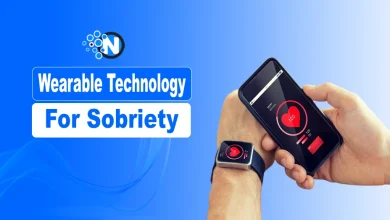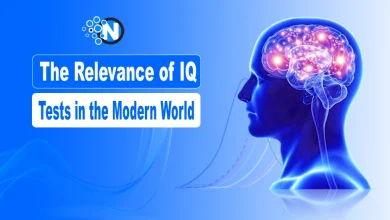How Automation Is Transforming The Hospitality Industry Behind The Scenes

There have been numerous changes in the hotel industry. A couple of years ago, guests had to stay in line to check in. Today, new technology makes the procedure faster and more efficient. Most of those advancements are due to automation and check in software. They make hotels more effective and ensure a better experience for guests.
In this blog post, I will discuss how automation is transforming the hotel industry to improve efficiency and guest experience.
The Rise Of Check-In Software In Hospitality
The Evolution Of Check-In Processes
Previously, the guests were required to queue up and discuss the room keys with the front desk employees. It was jolly slow and jolly aggravating. Hotels started to implement digital solutions in the late 1990s and early 2000s. Automatic self-service kiosks emerged, allowing guests to check in independently. In the long term, hotel check in software and digital keys became increasingly popular. Several hotels today combine these tools to accelerate processes.
The profitability of the modern check-in systems is obvious. They decrease the waiting time, staff workload, and make the process safer. The convenience delights the guests, ensuring their experience is pleasant from the start.

Key Features Of Modern Check-In Software
Today’s hotel check-in software includes several handy features. For instance:
- Self-service kiosks: Touch screens on which guests can register independently.
- Mobile check-in: Customers are able to carry out mobile-based check-in before their arrival.
- Digital room keys: Opening the hotel rooms by using applications on mobile phones and no physical key is necessary.
- System integration: These programs work seamlessly with property management systems (PMS) and other hotel tech tools.
- AI and ML: Artificial intelligence individualizes the stay of the guests and suggests to them.
These advantages do not only accelerate the process but also make it more intimate and safe.
Market Growth And Adoption Statistics
There is a rapid increase in the use of check-in software. The latest statistics show that currently, more than 65 percent of hotels offer possibilities for various aspects of digital check-ins. This change will lead to an increase in guest satisfaction scores and a reduction in operational rates.
The apparent return on investment is witnessed by the hotels as they reduce the time of their staff on check-in and check-out, they decrease the number of errors, and improve the satisfaction of their guests. With the improvement in technology, the drive to automate is becoming very pronounced.
The Role Of Automation In Guest Experience Behind The Scenes
Easy And Smooth Check-In And Check-Out Mechanisms
Visitors are no longer willing to wait in queues. Ticketing is automated, offering a touchless way to check in and check out. It reduces queues and makes entry stress-free. For example, Marriott introduced contactless check-in to most of its facilities, allowing guests to check in using an app and bypass the front desk altogether.
The checkout process is equally easy. Smart billing and electronic keys allow guests to check out independently, eliminating the need to visit the front desk whenever they wish. This is convenient for contemporary travelers.
Personalization And Customer Data Utilization
Automation is not only about speed; it also helps hotels personalize guests’ stays. Hotels collect information, likes and dislikes, and history of bookings, and loyalty data, and use that to tailor experiences. If a visitor is particular about a high floor or a specific type of pillow, the system notes this preference until the next visit. Special requests, such as a drink or a room upgrade, will be automatically addressed.
The collection and utilization of data, however, bring up questions of privacy. Hotels are forced to secure customer data and comply with privacy regulations. Automation, when properly executed, is personal and the guests like it.
Operational Efficiency And Staff Optimization
Automation will reduce the workload of employees to concentrate on guest interaction instead of menial duties. Chores such as room assignments, billing, and check-ins are automated. Hilton is an example of a hotel that has implemented automation to accelerate front desk processes and reduce wait times, thereby enhancing staff productivity.
Hotels would have the power to integrate check-in systems with other tech tools, such as housekeeping and maintenance. Such integration means rooms are prepared in a shorter period, personnel are more informed, and efficiency increases in general.
Behind The Scenes: Technology Infrastructure Powering Check-In Automation
Core Components Of Hotel Automation Systems
Behind every seamless check-in lies a complex system. Hotels rely on cloud-based platforms. There is a complicated system beyond a smooth check-in. Hotels use cloud-based services that safely store their data and communicate via APIs- software interfaces that allow various systems to interact with each other naturally. Encryption, as well as multi-factor authentication tools, secures the information of guests.
The Internet of Things (IoT) has a significant role. Smart devices, locks, and sensors talk to each other to enhance service delivery, such as automatic lighting, climate, and room access.
Challenges And Solutions In Implementing Check-In Software
Embracing new technology can be a bit tricky. Hotels must provide employees with necessary training in a way that employees do not fear using advanced systems. Technical failures, such as system outages, can negatively impact the guest experience. When change is coupled with a perception that change will lead to loss of jobs because of advancements in technology, employees are liable to resist change.
To succeed in overcoming these obstacles, hotels are advised to organize an appropriate training and test system before the launch, and inform the staff about the benefits. Implementation is easier because of the choice of a scalable solution and cooperation with it can be ensured.
Future Trends In Hospitality Automation
In the future, there is to be even more automation. Through the analysis of guest data, AI can provide personalized service with long-term advanced inquiries, allowing guests to know beforehand and make the required reservations. Voice assistants as virtual concierges will be a new trend, and with their help, guests can make inquiries and proceed with reservations.
The rooms will become smart and devices will be attached so that it becomes automatic to turn on and off lights, heat, and entertainment. With the IoT, guests will have fully automated but personalized experiences.
Main Steps To Follow for Successful Implementation
- Get On-demand, scaled check in software to accommodate shifting requirements.
- The data of guests should be confidential, but should be used in serving them in a personalized manner.
- Staff training is an effective way to maximize the benefits of new technology.
- You need to stay updated about industry trends to identify innovative tools that can make your hotel more competitive.
Summing Up
The hotel industry is being revolutionized under the radar of automated check-in codes. In the backstage, the tools are helping the operations to run quicker, brighter, and more customized.
The hotels that invest in these innovations achieve an evident benefit, increasing the satisfaction of their guests and reducing expenses. The future of automated guest services is even more surprising, as technology continues to evolve. To be a step ahead today implies accepting these changes and being ready for the future



